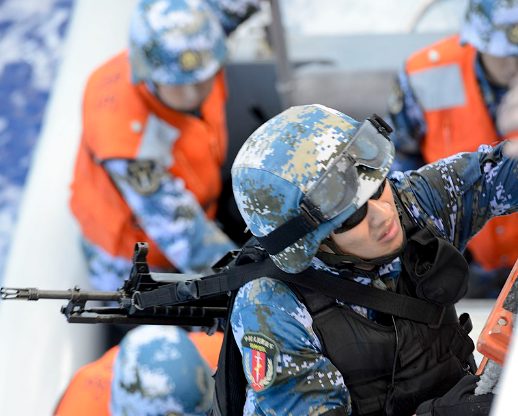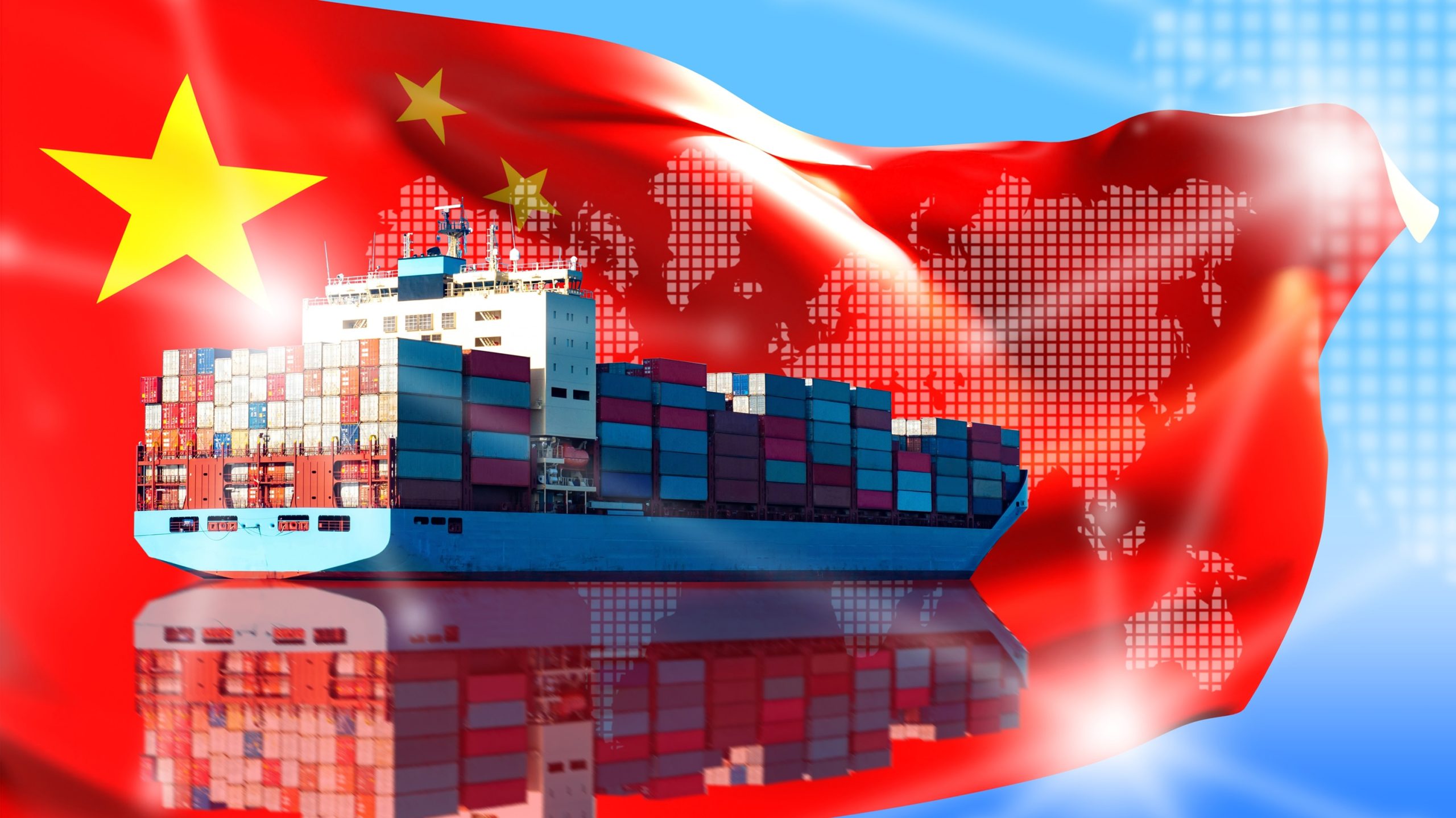Publications
INSS Insight, No. 1810, January 10, 2024
While attacks by the Houthis on Israel and civilian shipping in the Red Sea and the Bab-el-Mandeb Strait continue to mark the Israel-Hamas war in Gaza, China has been virtually silent, with no significant condemnation, and certainly no concrete action. China has also refrained from joining the US-initiated task force to protect navigation in the region, and its warships have failed to respond to distress calls from attacked ships. Beijing’s global pretensions collide with a low glass ceiling whenever they require any substantive activity or detract from its efforts to undermine Washington’s standing in the Middle East. Even when entities threatening regional stability have a negative impact on China’s interests, its diplomatic and military influence falls short of its rhetoric. For Israel, the limits of China’s “friendship” and the constraints affecting its relations with Jerusalem are clear.
On December 21, 2023, following two months of attacks against shipping in the Gulf of Aden and the Bab-el-Mandeb Strait, China for the first time addressed the question of its intention to play a more active role in securing the Red Sea region. A Chinese Foreign Ministry spokesperson stated, “The Red Sea is an important international trade route for goods and energy. Safeguarding the security and stability of the region serves the common interest of the international community. China stands for protecting the safety of international sea lanes and against causing disturbance to civilian ships. We believe relevant parties, especially major countries with influence, need to play a constructive and responsible role in keeping the shipping lanes safe in the Red Sea.” He did not specify which “major countries with influence” he was talking about.
In the past two years (February 2022; February, November, and December 2023), China has supported UN Security Council resolutions classifying and condemning the Houthis as a terrorist organization. Nonetheless, there has been no official Chinese condemnation of the Houthi attacks in the past three months. Chinese officials have not uttered the word “Houthis,” even when a Chinese ship was attacked. China never mentioned or condemned the dozens of missiles and drones that the Houthis have fired against Israel, nor has it condemned Hamas and its horrific massacre in Israel on October 7. Why?
Let there be no mistake; the Houthi attacks affect China significantly – directly because they threaten its freedom of navigation and security, and indirectly, because they influence the safety of Chinese investments and citizens in the region, which are critical for China. It is also clear that diverting the navigation routes of many shipping companies from the Red Sea to routes around the Cape of Good Hope harms China, the world’s largest exporter and second largest importer (or third largest after the European Union). This is true for Chinese trade with African and Middle East countries, including the Mediterranean Basin, and with the East Coast of the United States. The Chinese company COSCO, for example, has already announced it was redirecting its ships’ routes. Furthermore, ports and other infrastructure in the Red Sea region – and China has invested in many of them – are damaged, as are China’s “strategic” partners in the Red Sea, including Egypt and Saudi Arabia. Why, then, has China so far failed to respond officially in words or deeds?
China and Yemen have had ties since the 1950s. From the last decade of the 20th century through the beginning of the second decade of the 21st century, China stepped up its economic involvement in Yemen (investments and infrastructure, primarily oil and energy, including the Yemeni electrical grid). However, with the outbreak of war between the Yemeni government and the Houthis, which saw involvement by a coalition led by Saudi Arabia and United Arab Emirates (UAE) on the government’s side, these ties were severed, and China used its warships to evacuate its citizens from Yemen. China maintained relations simultaneously with both the official government in Yemen and the Houthi rebels. Indeed, China has a range of potential interests in Yemen, ranging from ports and oil to the construction and repair of infrastructure.
China’s occasional attempts to mediate between the warring parties were unsuccessful. When Iran and Saudi Arabia signed a reconciliation agreement in Beijing in March 2023, it was reported that part of the agreement related to an attempt to achieve a ceasefire between the Arab Gulf states and the Houthis. In late September, it was reported that Houthis shot and killed soldiers from Bahrain on Saudi Arabian soil, to which China responded with characteristic dryness: “China opposes actions that escalate tensions and calls on relevant parties to work in the same direction towards a political settlement through dialogue and restore peace and stability at an early date.” Condemnation of the Houthis? Not from China.
Since 2008, China has continually maintained a naval task force in the region, generally consisting of three warships to combat piracy and ensure freedom of international navigation. Yet since the Houthis began their attacks, there has been no reported Chinese response, and the force allegedly did not respond to distress calls from a civilian ship during a Houthi attack. When the US announced Operation Prosperity Guardian, an international mission led by a special task force to ensure freedom of navigation in the region, and stated it would welcome cooperation with China on the matter, Beijing kept silent, while Western and Middle East countries, India, and Japan embraced the effort, either officially or implicitly. When China talks about “major countries with influence,” it is seemingly referring primarily to the US, and does not include itself in this category.

China’s response to date is apparently motivated by a number of considerations, among them a fear of involvement in Middle East conflicts, primarily between Iran and the Houthis on one side and the Gulf countries and Israel on the other. China’s Middle East policy, which aims to gain credit among Arab and Muslim governments and communities, includes a clear stance in favor of the Palestinians, on whose behalf the Houthis ostensibly wage their attacks. As with the Houthis, China never mentions Hamas by name. China has limited ability to intervene militarily and politically and exert influence on the Houthis and Iran, and has little confidence in its own ability in this sphere. Finally, China regards every situation as an opportunity to saddle the US with responsibility and blame, while China purportedly behaves responsibly by calling for stability and global peace. As for the safety of trade to and from China, Beijing may be counting on the crisis ending in the near future, with only a temporary and marginal effect. Were China to join forces with the US against the Houthis, this would be liable to be interpreted (above all in China itself) as acceptance of American dominance and cooperation with an actor whom China has repeatedly portrayed as the main problem in the Middle East.
China’s social media have also avoided mentioning the damage to China – economic and specifically to Chinese ships – and have even praised the Houthis as righteous fighters against evildoers (i.e., the US and Israel). Claims are sounded on social media that Israel is now totally isolated because of the Houthis, and the US is ridiculed for both causing the main problem and failing to solve it. A December 19 editorial in the Chinese Communist Party mouthpiece Global Times argued that the “crisis” in the Red Sea was a “butterfly effect” of the war in Gaza, and that the real problem was not the Houthis, but Israel – which refuses to agree to an immediate ceasefire – and perhaps above all, the US: “The root cause is that the US has never taken a fair stance, nor has it taken into consideration interests of the Middle Eastern countries, but rather approaches the Middle East issue based on its own hegemonic needs.”
This attitude, of course, is not confined to Yemen and the Houthis. The recent Iranian attack on a ship in the Indian Ocean and the reports of Iranian complicity in the Houthi attacks by means of intelligence and weapon systems transfers generated no comment from China. Indeed, even when Iran itself attacked ships, oil infrastructure, and other targets in the Gulf states several years ago, China refrained from issuing clear and unequivocal condemnations; it primarily called on the parties to avoid violence and to make peace with each other. China declined to join international initiatives to preserve freedom of navigation, even though the Gulf states – mainly Saudi Arabia and UAE – which for China are important “strategic partners,” were directly attacked by Iran, and the security of energy supplies, an important Chinese interest, was under threat.
In the context of great power competition, China portrays itself as a “responsible global power,” in contrast to the US, but in the Red Sea crisis, Beijing prefers to remain silent and avoid a clear declarative stand, let alone action. Given the threat to shipping in the Bab-el-Mandeb Strait, China’s grandiose rhetoric and initiatives are exposed again as meaningless slogans – in this case, the Global Security Initiative (GSI), which China tried explicitly to link to a solution to the conflict of the Houthis against Saudi Arabia and UAE. Despite its efforts to foster the narrative of US abandonment of the Middle East and undermine Washington’s alliances and status as a reliable guarantor of security worldwide and in the region, the limitations of Chinese power are evident. The Houthi attacks against not only Israel, but also, and perhaps primarily China’s Arab partners, such as the Gulf states and Egypt, highlight China’s inability and lack of interest to influence the situation. In the course of the current war there has been no indication of China exerting any moderating influence on Iran, nor even attempts to exert such influence.
In any case, the emptiness of China’s pretensions has come to the fore. China provides security to no one, and its forces in the region prove irrelevant when put to the test. Even when important Chinese interests are at stake – freedom of navigation and shipping security – China prefers to continue its reliance on the efforts of other countries, mainly the US, which China spares no effort to harass, sometimes using Israel for this purpose. For some reason, China is occasionally proposed as an alternative to the strategic bulwark that Washington provides to Israel. The US response to the Houthi challenge and its general policy in the Gaza war present a decided and definitive answer to such a proposal: the US is Israel’s essential and irreplaceable strategic ally. China is a broken reed.



